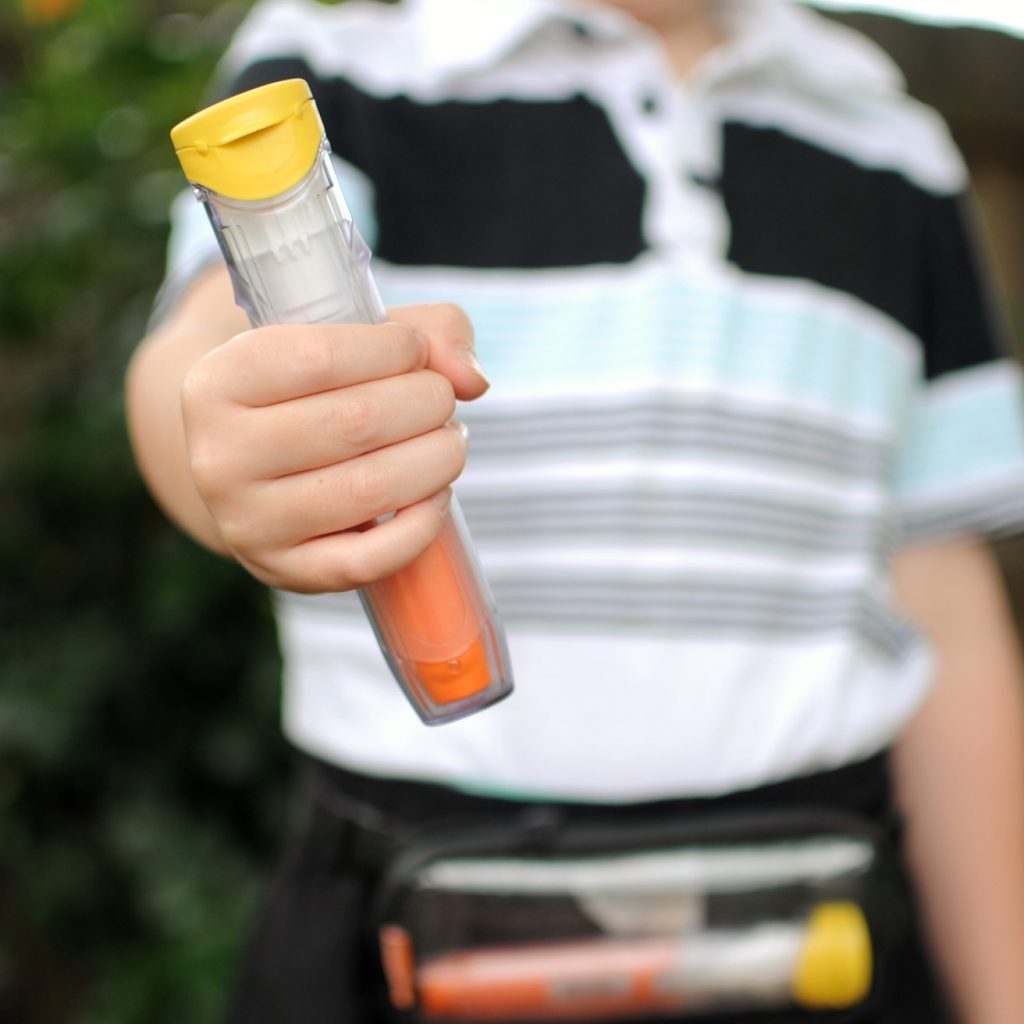Learn about the top misconceptions about food allergy to help you separate fact from fiction.
Having the right information is important for managing food allergy confidently. Help us educate your communities and share our mythbusters with them!
Food allergy basics
- Mythbuster: Are most people with food allergy allergic to one food only?
- Myth:Someone with a tree nut allergy has to avoid all foods with “nut” in the name
- Mythbuster: Are vegan products safe for those with milk and/or egg allergy?
- Myth: Is an allergy to dairy the same thing as milk allergy
- Myth: Food allergy and pollen allergy don’t overlap
- Myth: Someone who doesn’t feel well after eating a food must be allergic to it
- Myth: The smell of food can cause an allergic reaction in someone with food allergy
- Myth: Food allergy cannot be outgrown
- Myth: Some allergies are more “severe” than others
- Myth: Only priority allergens cause life-threatening reactions

Diagnosis
Treating reactions
- Myth: You can antihistamines treat anaphylaxis if given as soon as a reaction happens
- Myth: Epinephrine is dangerous
- Myth: Epinephrine auto-injectors cannot be given through clothing
- Myth: It’s okay to wait and see before administering epinephrine when having symptoms of anaphylaxis
- Myth: The upper arm, the thigh and the hip are all recommended sites for epinephrine auto-injectors to be given
- Myth: Benadryl® can be used instead of epinephrine to treat anaphylaxis
- Myth: Allergic reactions always happen within minutes of eating a food
- Myth: Allergic reactions worsen with each exposure to an allergen
- Myth: Only one dose of epinephrine is needed to treat an anaphylactic reaction
- Myth: Antihistamines and asthma medications can be used to treat anaphylaxis
- Myth: Hives are always present during an allergic reaction
- Myth: Someone who has been treated with an epinephrine auto-injector doesn’t necessarily need to go to the hospital
- Myth: Epinephrine auto-injectors cure food allergy

Daily management
- Myth: If someone is allergic to cow’s milk, do they need to avoid milk from other animals?
- Myth: Are vegan products safe for those with milk and/or egg allergy?
- Myth: Is dark chocolate safe for someone with a milk allergy?
- Myth: Age is a risk factor for food-related anaphylaxis
- Myth: Food allergen labelling laws apply to natural health products
- Myth: Food allergen labelling laws apply to all products
- Myth: Someone who has fish allergy should avoid all seafood
- Myth: If a product is used regularly, it isn’t necessary to read the label every time
- Myth: Someone who is allergic to food should eat products that “may contain” their allergen
- Myth: Someone who has peanut allergy should avoid all legumes
- Myth: Someone who has tree nut allergy should avoid peanuts
- Myth: All allergy-inducing ingredients must be listed on food labels
- Myth: Cross-contamination doesn’t occur through saliva
- Myth: Cooking at high temperatures kills allergen proteins
- Myth: “May contain” allergen labelling is mandatory
- Myth: Trick-or-treat sized candies and chocolates always have the same ingredient list as the full-sized product

Treatments and therapies
Other topics
Other conditions
- Is it a myth to think that someone can have both IgE- and non-IgE-mediated food allergy?
- Myth: Do oral allergy syndrome (OAS)/pollen food allergy syndrome (PFAS) symptoms only happen during pollen season?
- Myth: Food intolerances and food allergy are the same
- Myth: Celiac disease is the same as a wheat allergy
- Myth: Is it a myth to think that EoE only affects kids?




